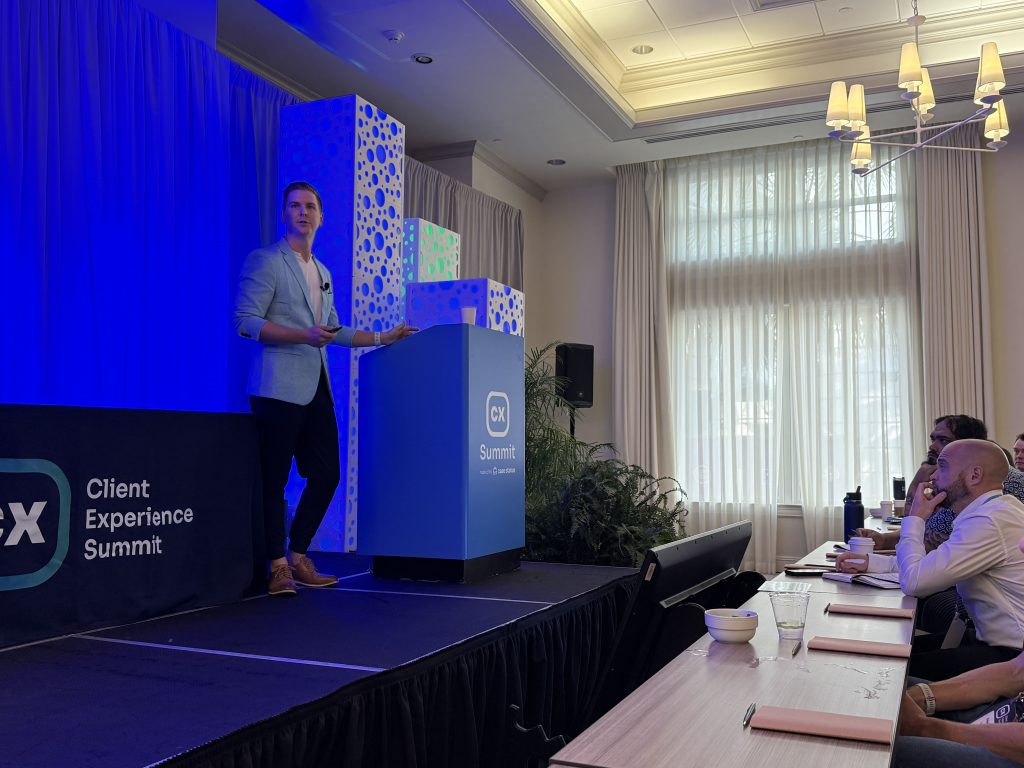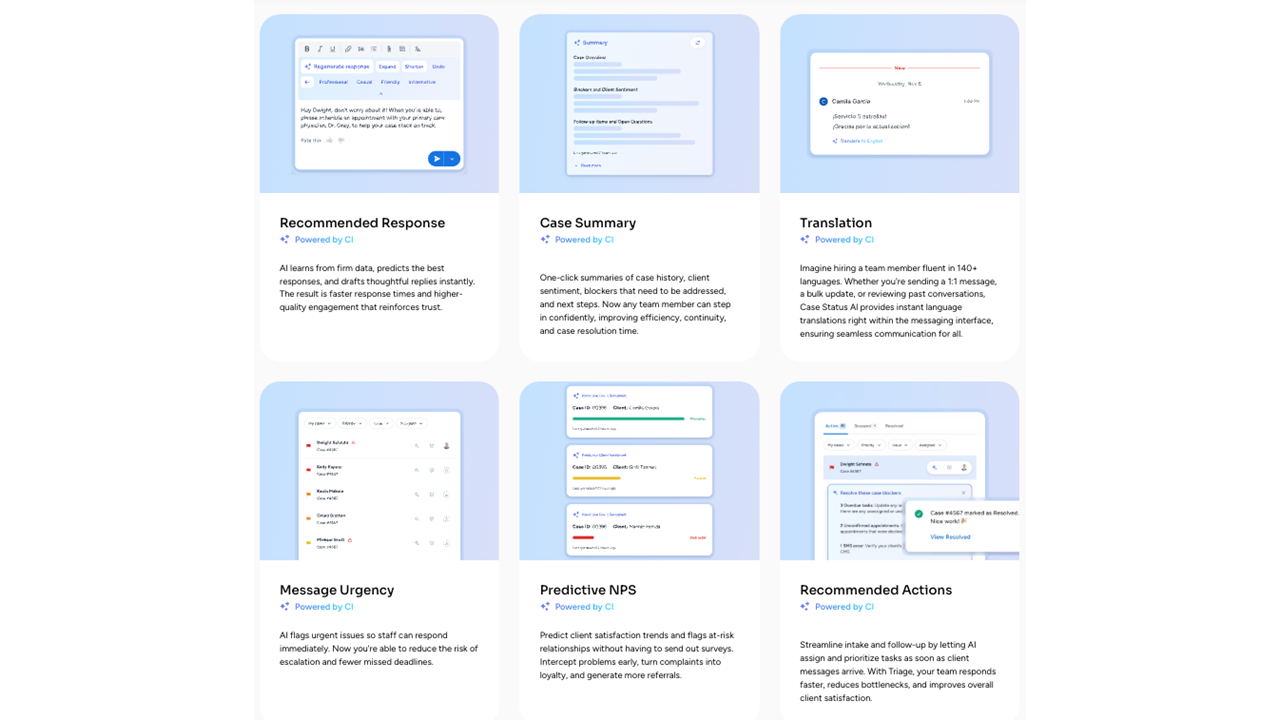The legal technology company Case Status today unveiled Client Intelligence, an AI-driven platform that the company says represents a significant shift from reactive client management to predictive client engagement.
The company announced the launch earlier today at its inaugural Client Experience Summit in Charleston, S.C., positioning the platform as a “system of action” rather than just a system of record.
(I am attending the summit and will report more about it later on.)
“We’re entering a new era where client and firm knowledge drive AI-powered insights that deliver measurable business impact,” said Keith Kitani, chief product officer at Case Status. “Client Intelligence enables firms to shift from reacting to client needs to anticipating them, resulting in stronger client relationships, greater operational efficiency, and accelerated growth.”
Beyond Net Promoter Scores
 The platform addresses a fundamental limitation in current client satisfaction measurement. As CEO Andy Seavers explained in a recent interview with LawSites, traditional Net Promoter Score surveys become meaningless when clients are already upset.
The platform addresses a fundamental limitation in current client satisfaction measurement. As CEO Andy Seavers explained in a recent interview with LawSites, traditional Net Promoter Score surveys become meaningless when clients are already upset.
“If you talk to a client and they’re cussing you out, you don’t end the phone call saying, ‘Hey, zero to 10, how likely are you to refer me to a friend or colleague?’ They’re definitely going to hang up on you.”
Client Intelligence aims to predict client dissatisfaction before it occurs, drawing on Case Status’s extensive dataset of 21 million messages, 280,000 NPS scores, and 150 million mobile app activities from just the past year alone.
The Triage System
At the heart of Client Intelligence, Seavers told me, is a product called Triage, which identifies every possible action within the Case Status platform, prioritizes them, provides context, and pre-completes tasks for staff review. The system goes beyond simple automation by incorporating firm-specific knowledge and client history.
Examples include automatically drafting responses to clients lost outside the courthouse before a hearing, or proactively reaching out to clients who typically miss appointments with personalized guidance including addresses and reminders about the importance of attendance.
“Instead of Case Status being a tool where people ask questions and you respond like a support tool, it queues up and makes client engagement completely prescriptive in the way that we recommend how they care for those clients,” Seavers said.
Data-Driven Approach
The platform leverages multiple data sources including firm websites, knowledge banks, and communication histories to create what the company describes as “a single AI-powered ecosystem.”
It describes the components of that ecosystem as:
- Data: Leveraging firm, client, and case data – including platform metadata and external inputs like VoIP – to identify patterns and trends.
- Insights: Using AI to interpret intent, emotion and context while predicting client needs, anticipating challenges, and recommending next steps.
- Agents: Using agents to automate workflows, prioritize work, enhance client experiences, and enable staff to deliver better outcomes.
Available to All Subscribers
Client Intelligence will be available across all Case Status subscription tiers, so that firms of all sizes can make use of its capabilities.
Subscribers in upper-level tiers will have access to enhanced Client Intelligent capabilities, the company said.
“Client Intelligence helps firms unlock the power of the data they already have to deliver extraordinary value,” Seavers said. “This is the future of legal client engagement – more predictive, more proactive, and more client-focused than ever.”
 Robert Ambrogi Blog
Robert Ambrogi Blog